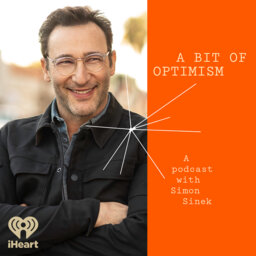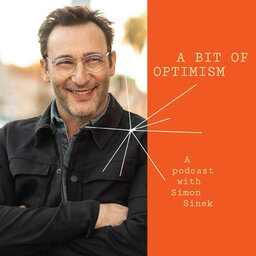The Anxious Generation with social psychologist Jonathan Haidt
Anxiety disorders affect Gen Z at astronomically higher rates than previous generations. There's plenty to be anxious about in the modern world. But the reason behind Gen Z's mental health crisis might be simpler than you'd think.
According to social psychologist and NYU professor Jonathan Haidt, the answer lies in growing up with a combination of smartphones and social media. In his new book The Anxious Generation, he argues that Gen Z's anxiety is a symptom of being the first generation to go through puberty on Instagram and TikTok, with iPhones available to access them constantly.
Thankfully, Jonathan believes the problem is solvable. He shares some advice he has for concerned parents and tells me how we can fix the mental health crisis affecting our kids in just a few years time.
This...is A Bit of Optimism.
To learn more about Jonathan's work, check out:
anxiousgeneration.com
jonathanhaidt.com
And for parents, visit:
letgrow.org
In 1 playlist(s)
A Bit of Optimism
The future is always bright...if you know where to look. Join me each week for A Bit of Optimism - …Social links
Follow podcast
Recent clips

Revisited: We Cannot Heal Alone In The Loneliness Epidemic with Rabbi Sharon Brous
34:12

Confident Ignorance with rapper, novelist, and filmmaker Logic
1:00:19

Wealth Is Togetherness with community organizer Kennedy Odede
37:11
 A Bit of Optimism
A Bit of Optimism